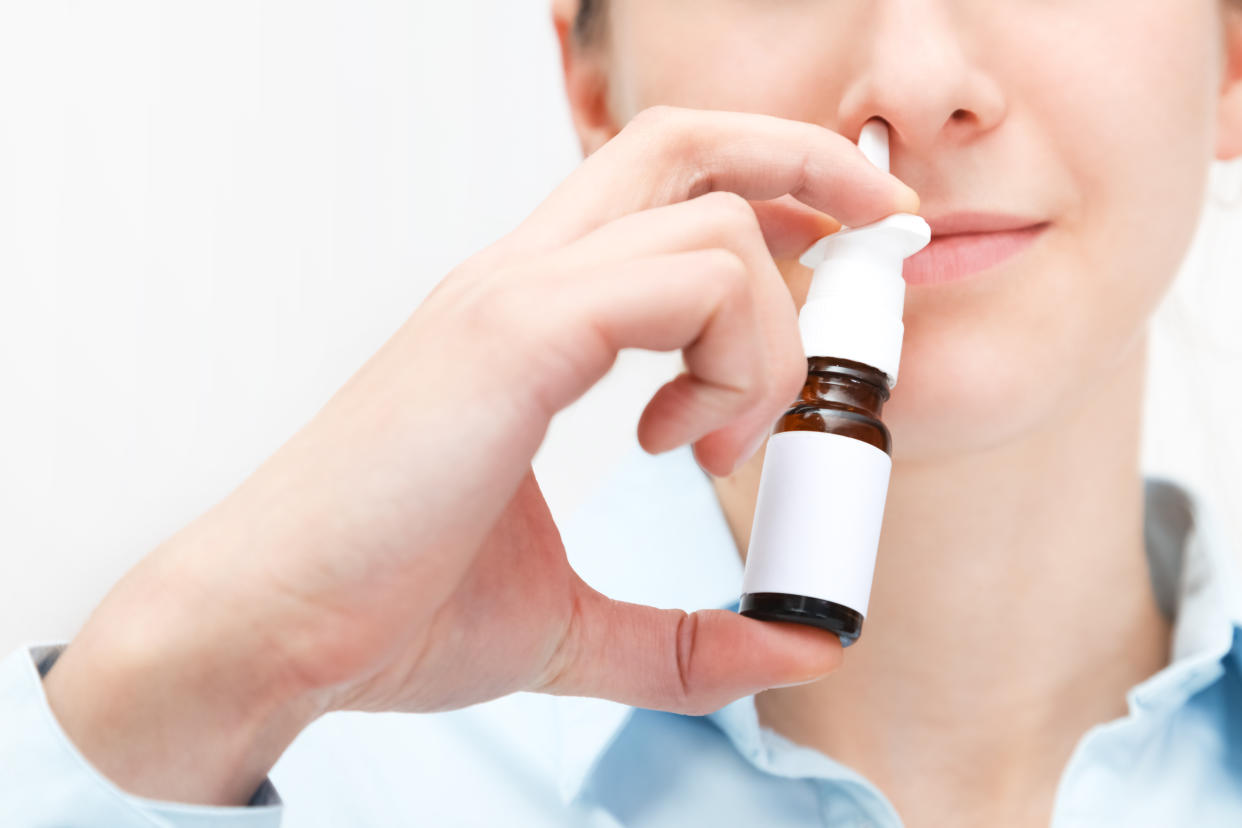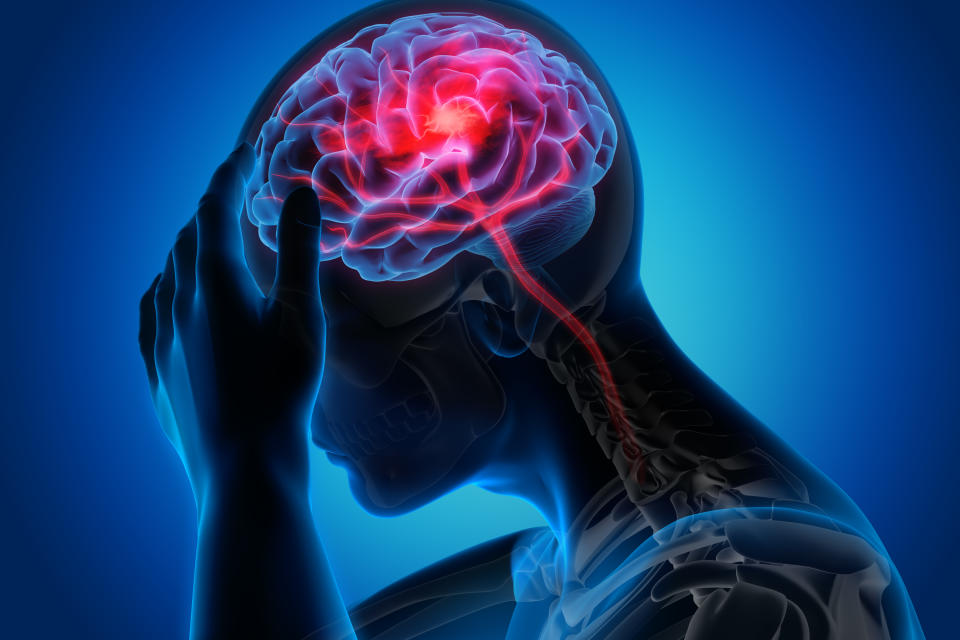Nasal spray may one day repair damaged brain cells, study suggests

A nasal spray may one day help to reverse brain damage, research suggests.
It is increasingly emerging that tiny particles called extracellular vesicles may aid the regeneration of brain cells, while reducing inflammation.
The vesicles are thought to promote communication between cells by pinching off part of one cell and then attaching to another, sharing the contents.
Scientists from Texas A&M University found the vesicles can carry proteins and other fragments that aid brain cell regeneration and promote new connections.
Read more: Faecal transplant could reverse age-related memory loss
When administered via the noses of rodents, the vesicles led to the generation of new nerve cells in the region of the brain that controls memory.
The scientists hope a nasal spray could be given to someone at high risk of lasting damage, like an athlete after a concussion, adding the vesicles appear to reach nearly all regions of the brain within just six hours.

The Texas scientists derived the vesicles from so-called human induced pluripotent stem cells (iPSC).
Stem cells are basic cells that can change into a more specialised form of cell.
iPSC are derived from skin or blood cells that have been reprogrammed back into an embryonic-like state that enables the development of any cell.
Read more: Men in manual labour jobs may face higher risk of dementia
Deriving neural stem cells, which generate parts of the nervous system, from iPSC has shown promise for brain repair.
It has also been linked to safety concerns, however, like an abnormal immune response and the onset of tumours.
Deriving vesicles from these neural stem cells has so far shown to be safer.
Watch: Friends defy the odds to survive after being born with brain damage
After isolating the vesicles under a microscope, the Texas scientists found they can carry proteins and microRNAs that help regenerate brain cells in the hippocampus, the learning and memory centre of the brain.
In simple terms, RNA is a precursor to the more well-known DNA. MicroRNAs are small fragments that regulate protein production.
A mouse study by the Texas team also suggested the vesicles reduce inflammation.
When administered intra-nasally to mice and rats, the scientists found the vesicles were incorporated into virtually all regions of the brain, while also promoting nerve cell production in the hippocampus.
Although early days, the spray could one day lead to dementia treatments that “intervene very early and slow down these diseases”, according to study author Professor Ashok Shetty.
Dementia is an umbrella term for a range of conditions that lead to a decline in brain function.
Many of these conditions are associated with an abnormal build-up of proteins that cause nerve cells to deteriorate and ultimately die.
Read more: Flipping protein 'off switch' may reverse vision loss
Administering the vesicles via the nose may lead to a low-cost, non-invasive, preventative treatment to ward off brain injuries.
“Imagine a football player who has a concussion,” said Professor Shetty, according to Nanowerk.
“You just have to give him a nasal spray of vesicles to prevent long-term adverse effects such as cognitive and mood dysfunction.”
While further research is required, there “likely won’t be any side effects” with this sort of treatment.
The vesicles’ small size means they are not thought to block blood vessels or trigger an immune response.
Vesicles could theoretically be derived from stem cells in skin or blood, which are already widely used in research.
In the US, the Food and Drug Administration would first have to approve the treatment for therapeutic use via human clinical trials, with this sort of therapy for brain disorders being restricted to animals.
Safety concerns mean no clinical trial has investigated brain disorder therapies that use neural stem cells generated from human iPSC.
“That’s why many groups are working on perfecting the isolation of therapeutic vesicles from different types of neural cells, including neural stem cells,” said Professor Shetty.
Watch: Family sues hospital after baby develops brain damage



